“If we don’t put aside our enmities and band together, we will die. And then it doesn’t matter whose skeleton sits on the Iron Throne.”
During Jon Snow’s shaky introduction to Daenerys Targaryen in the seventh season of Game of Thrones, Ser Davos Seaworth succinctly contextualized the political realities in Westeros. Queen Daernerys had come to claim her birthright and rule the Seven Kingdoms, but there were much bigger issues at stake.
Davos’ observation not only framed the issues for Dany, but also made concrete the realization that fans and critics of the show had come to over the course of the seasons. Although Game of Thrones was presented as a quasi-historical political drama (with light fantasy elements initially) – a supernatural apocalypse that had only been hinted at early on was in the making, and all of the political shenanigans in the capital – the wars of kings, the competition of queens, the strife between church and state – were just distractions keeping the policymakers of the realm from being able to respond to an ancient, existential threat.
The terrifying assault of the White Walkers on Hardhome made that clear.
Political shenanigans can be entertaining and engaging, but the Night King and his army of the dead isn’t going to be interacted with at that level. It’s not like there’s a diplomatic solution to ice monsters.
Night King: Not so fast! Have we been given a chance to state the advantages of allowing the White Walkers into the mainstream? We’re equal-opportunity employers, demonstrate hard-working values, and our health care system really can’t be beat. We provide coverage for almost everything but fire, obsidian, and dragonsteel. (Which are all terrible things that will be outlawed at the first opportunity.) I suggest that every citizen of Westeros gather in some large, approachable open field, and a designated champion can be chosen to debate me. DEBATE ME! (But bring no weapons.)
Technically, there is a political solution to dealing with the White Walkers, if we consider the words of Carl Von Clausewitz (that Prussian war strategist that gets quoted in nearly every war movie):
War is the continuation of politics, by other means.
With that in mind, the eighth season of Game of Thrones will therefore be spectacularly political.
There doesn’t seem to be much of a chance that the show will end with a triumphant Night King. Although George RR Martin is known for wanting to subvert tropes, and having a terrifying evil ultimately win would certainly be a subversion of thousands of years of good storytelling, he probably doesn’t want to subvert too much. And it goes against what he’s recently stated about the expected ending of the story: that the ending will be bittersweet.
The Night King winning wouldn’t be bittersweet, it would be sour and gross.
Night King: DEBATE ME!
Me: No.
But the show’s finale will probably be something more than just the heroic ending of the Long Night and fade out to the end-credits. In his hypothetically-final book A Dream of Spring, GRRM will no doubt deal with the post-Long Night in more detail, but I suspect the show will have to at least honor in some way Martin’s observations on how the influential fantasy epic Lord of the Rings wrapped up not entirely satisfactory for him.
Ruling is hard. This was maybe my answer to Tolkien, whom, as much as I admire him, I do quibble with. Lord of the Rings had a very medieval philosophy: that if the king was a good man, the land would prosper. We look at real history and it’s not that simple. Tolkien can say that Aragorn became king and reigned for a hundred years, and he was wise and good. But Tolkien doesn’t ask the question: What was Aragorn’s tax policy? Did he maintain a standing army? What did he do in times of flood and famine? And what about all these orcs? By the end of the war, Sauron is gone but all of the orcs aren’t gone – they’re in the mountains. Did Aragorn pursue a policy of systematic genocide and kill them? Even the little baby orcs, in their little orc cradles?
— Rolling Stone interview with GRRM, 2014
In the final season, even though the Long Night will give way to the dawn of Spring and joyous celebrations, there will have to be some time for tax policy questions.
Or at least an answer to who will end up on the Iron Throne.
Davos: I said it didn’t matter!
Me: This isn’t a debate. We’re going to talk about the Iron Throne.
Davos: Fine.
At the start of Season Eight, Westeros will be suffering from competing claims (with some claims still to come on the horizon) and various local leadership issues. Almost all of the Seven Kingdoms either have an authority vacuum or a dispute over who is the regional power broker. The invasion of wights and ice wizards will probably not improve the situation, depending on how deep south they can get.
The Landscape, Politically
The North appears to be solidly behind Jon Snow, King in the North and the White Wolf, but Jon’s absence from Winterfell has made some of the northern lords restive (along with members of the Vale allies) and they appear to favor the Lady of Winterfell, Sansa Stark. Jon’s hidden heritage is like a time-bomb that could go off either before, during, or after warfare against the White Walkers, revealing him to not be the son of Ned Stark, and shifting the claim to Winterfell from him to Bran, Sansa, and Arya. (Unless there was – I don’t know – some revelation that King Robb Stark had officially named Jon his heir shortly before the Red Wedding. But that would be crazy – and canon to the books.)
The Freys who ruled the Riverlands are dead, slaughtered by avenging murder-angel Arya Stark. In theory, Edmure Tully might still be a prisoner of the Lannisters (although Walder mentioned to Jaime at the post-Riverrun siege that Edmure was in his dungeons, Jaime seemed keen to get Edmure and his son away from the Freys for Lannister control.) With the Freys gone, Edmure could make a case to claim Riverrun and get the riverlords’ support, but the years of strife might make them want to sit out any fresh conflict.
The Iron Islands have competing claimants with Euron Greyjoy being on top, having won the kingsmoot, enjoying the support of Cersei in King’s Landing, and having captured his chief rival, Yara Greyjoy. But Theon is coming for his uncle with a renewed purpose and until Yara and Theon are sent to the Drowned God, rulership of the Iron Islands will be in dispute.
The Vale is currently ruled by the least impressive Lord Paramount on the show (even counting dead Mace Tyrell.) Lord Robin Arryn was not well mentored by his mother Lysa, nor well served by the Lord Regent Petyr Baelish. And the Vale of Arryn might have its own problems, with the absent Knights of the Vale deployed to the North, and the aggressive mountain clans who had been promised the Vale now armed with Lannister steel.
Robin Arryn: Maybe we should build a wall!
Me: It’s a bit too late in the game for that, m’lord.
Shagga: I like axes.
I would not be surprised if most of the top lords in the Crownlands around King’s Landing were at the Great Sept the morning of Cersei’s scheduled trial. And the surviving sons, daughters, and bastards are competing over the now vacated (of management) castles.
Lollys Stokeworth: Oh goody! Now I can marry Ser Bronn and we can live at Stokeworth. The gods are good!
The kingdom of the West is still nominally under Lannister control, although the populace might have felt a bit abandoned when Jaime left Casterly Rock unguarded as a honeypot for Daenerys’ Unsullied shock troops early in the seventh season. Assuming the West is still pro-Lannister, it’s a good question of which Lannister is in charge. Cersei is away at the capital, Jaime is heading north, and Tyrion had a credible claim as Tywin’s legal if unacknowledged heir until Jaime was dismissed from the Kingsguard. It’s possible that some random Lannister cousin is holding things together in the West. Lannister cousins seem to appear and disappear when convenient in the story.
The kingdom of the Stormlands hasn’t been mentioned since Season Two, and was staunchly pro-Baratheon (well, either pro-Renly Baratheon or pro-Stannis Baratheon.) With the defeat of Stannis’ forces at the Blackwater, we can assume Tywin Lannister awarded Lannister cronies (like Red Ronnet Connington) control of strategic assets in the Stormlands. So we can consider the Stormlands pro-Lannister until that gets updated, if ever.
The Reach lost its paramount family the Tyrells (thanks to Cersei and Jaime) followed shortly by the death of the martial men of the powerful Tarly family (thanks to Dany and Drogon.) Who is in charge of the Reach now? Until something official is announced, I assume the Hightowers are the best candidate. They’ve been mentioned on the show (or rather, the old Lord Commander Gerald Hightower was mentioned in passing) and we’ve seen the Hightower seat of authority – the immense lighthouse by the Citadel in Oldtown.)
House Hightower’s urban economic power plus close relationship with the maesters at the Citadel provides them with soft power influence to prevent much of a power vacuum in the Reach..
Anything could happen with Dorne. They’re not pro-Lannister but they’re also leaderless, with Ellaria Sand killing off the Martells (for reasons) and Cersei having the Sand Snakes killed and imprisoning Ellaria. Although Podrick Payne recited the names of Dornish houses when waiting for Prince Oberyn to arrive in Season Four, the only non-Martell Dornish family members we’ve met were the Daynes, via Ser Arthur Dayne in a Bran flashback. But it’s unlikely anyone from Dorne will be a part of the eight season. The Dornish will just have to figure out who is in charge on their own, which is fairly thematic for them, honestly.
Because of the rudderless situations in most of the individual Seven Kingdoms, whomever ends up on the Iron Throne from out of the three most prominent contenders (Cersei, Dany, and Jon) will probably be able to easily get a majority of the individual regions to go along. But who will that be?
Night King: DEBATE ME!
Me: This isn’t a debate. And there’s only one right answer: Daenerys Targaryen.
The Case for Queen Daenerys
Cersei Lannister winning the game of thrones (hey, that’s the name of the show) would be as sour as a total wight victory. She absolutely won’t be seated comfortably on the iconic uncomfortable chair. And after Cersei broke faith with Dany and Jon, withholding promised troops to aid in the war effort against the wights, there’s really no turning back for her character.
Her Lannister-controlled regions would probably flip to the side of her opponents regardless since her control of the kingdoms was tenuous in the best of times. (The arrival of the Golden Company mercenaries in Season Eight might make things interesting for a while. But won’t be a long-term advantage for her.)
With Cersei off the table, it comes down to either Jon Snow or Daenerys Targaryen. It’s a bummer that these two crazy kids can’t get married and live happily ever-after as sexy aunt and sexy nephew, but George RR Martin has promised us a bittersweet ending, and I don’t even know what to call a joint married rule of Jon and Dany. One of those two is not going to make it to the end, and I have my pick.
Jon Snow has already died, and although some people say that it would be redundant for him to die a second time, I disagree. All Men Must Die.
Jon Snow should be dead, and the fact that he’s up and moving around just means that he’s living on borrowed time. He’s back for a reason, and that reason probably doesn’t have much to do with formulating tax policy in Small Council meetings. He’s going to die fighting the good fight.
Jon: But, we all die.
Beric: The enemy always wins. And will still need to fight him. That’s all I know. You and I won’t find much joy while we’re here, but we can keep others alive. We can defend those that can’t defend themselves.
The show is already setting up the seeds for a conflict between Jon and Dany when it’s revealed that he’s Rhaegar Targaryen’s legitimate son and has a better claim than hers. She’s probably pregnant with his child (I’m assuming great boat sex guarantees pregnancy) and if Dany dies, that’s the end of that. Not a very satisfying conclusion to Daenerys’ storyline and hasn’t the show had enough women either dying when pregnant, or dying after giving birth?
Jon, having the better claim, should end up on the throne, if this was a traditional medieval fantasy. But Game of Thrones isn’t that, really. So his death has the benefit of trope subversion. And follows the parameters already set up for Jon’s self-sacrifice. And would be a bittersweet ending for Dany, regretting whatever Season Eight drama she goes through with him when he truly never wanted to be king in the first place.
Daenerys has been working her way to fulfill GRRM’s request for a ruler with an understood tax policy since the beginning of the story. She’s been considering the political ramifications of ruling the Seven Kingdoms from the start.
Dany rode close beside him. “Still,” she said, “the common people are waiting for him. Magister Illyrio says they are sewing dragon banners and praying for Viserys to return from across the narrow sea to free them.”
“The common people pray for rain, healthy children, and a summer that never ends,” Ser Jorah told her. “It is no matter to them if the high lords play their game of thrones, so long as they are left in peace.” He gave a shrug. “They never are.”
Dany rode along quietly for a time, working his words like a puzzle box. It went against everything that Viserys had ever told her to think that the people could care so little whether a true king or a usurper reigned over them. Yet the more she thought on Jorah’s words, the more they rang of truth.
— A Game of Thrones, Daenerys III
The show has established that Dany is interested in political change and reform, even if her attempts with engaging in political experimentation on the Slaver Bay cities had catastrophic initial results. And unlike other contenders for the Iron Throne who couldn’t imagine ruling less than all seven kingdoms directly…
Stannis: Fewer.
… Dany at least considers the idea of distributed power.
Daenerys: And you don’t want the Seven Kingdoms?
Theon: Your ancestors defeated ours, and took the Iron Islands. We ask you to give them back.
Daenerys: And that’s all?
Yara: We’d like you to help us murder an uncle or two who don’t think a woman is fit to rule.
Daenerys: Reasonable.
Tyrion: What if everyone starts demanding their independence?
Daenerys: They’s not demanding. They’re asking. The others are free to ask as well.
The show already has options to wrap up the post-White Walker defeat era with Dany mourning Jon but also addressing what to do politically in Westeros. Things like granting Sansa wardenship of the North, since the two of them can mutually bond over the loss of Jon, and granting control of the West to Tyrion (or Jaime – I don’t have a horse in that race, really.) As well as legitimizing Gendry into a Baratheon and granting him lordship of the Stormlands with Ser Davos to help him run things smoothly.
Night King: Wait.
Me: What?
Night King: I’m going to blow your mind. What if there is NO IRON THRONE?
Me: *Sigh* Fine.
Farewell Feudalism?
A popular answer to the question of “Who will sit on the Iron Throne” is “no one, because there is no throne anymore.”
Typically, the elaboration of the throneless-answer is that the feudal structure in Westeros will be abandoned, to be replaced with something more egalitarian and democratic.
I think that’s very unlikely. At least, not in the timeframe left for the show.
The feudal structure of Westeros was in place under a single monarch for three centuries after the conquest by Aegon, and previously existed under multiple kings controlling the independent regions for thousands of years. Even though many of the traditional ruling houses throughout the kingdoms have been wiped out during the course of the show’s seasons, other noble houses exist to take advantage of the power vacuum, without the smallfolk spontaneously organizing into anarcho-syndicalist communes. Changes like that have to come from the top, because that’s where the power is.
It’s easy to see why people want there to be some kind of democratic reform in Westeros. GRRM’s story interrogates the problems inherent in the feudal system, where the powerful can violate the social contract with their vassals with little consequence, but his story is fairly realistic. There’s very little incentive for the mighty to support a system other than Might Makes Right.
There are examples in the books of groups who don’t live under such a rigid structure. Both the mountain clans and the wildling Free Folk have relatively flat power structures, with most everyone getting a say with direct representation. But both of those groups are historically unsuccessful when compared to their feudal counterparts, who have kept them living in the margins for centuries.
Wildling: I’m just saying, why do any of us have to kneel to any of you?
Warden of the North: I’ve heard those last words before, outlaw.
Wildling: You could at least let me stand up when you behead me.
Warden of the North: Yeah. But this is much easier for me.
The Night’s Watch and the Ironborn captains have democratic traditions for choosing their supreme executive, but that’s less an enlightened system of granting power to the people, and more a convenience of having an alternative to inherited succession. In both cases the voters are ending up perpetuating an established feudal structure.
But we might see the beginnings of challenges to the notion of feudalism being the optimal form of governance, since Daenerys has talked about challenging the structure of power in Westeros.
Tyrion: It’s a beautiful dream. Stopping the wheel. You’re not the first person who’s ever dreamt it.
Daenerys: I’m not going to stop the wheel. I’m going to break the wheel.
Dany wasn’t too clear in her political thesis, but I assume we should consider the smallfolk-crushing wheel a metaphor for feudalism. With only six (albeit extra-long) episodes left in the series, I doubt there would be time for something too radical. But maybe there will be some time for an elaboration of what Dany means by breaking the wheel.
At the very least, some signal that Dany would like to protect the people of Westeros from the Targaryen legacy of royal madness. The power structure in the Seven Kingdoms can’t be reversed overnight, but it’s possible to see limits placed on power at the top. Checks and balances are wonderful things, something not really recognized until they’re not used.
Some kind of Magna Carta-style document drafting might be the way to communicate the idea that Westeros is progressing on, satisfying some of George RR Martin’s questions about how a monarch might be a good one.
Night King: I would be the best monarch! DEBATE ME!
Me: Okay, let’s debate.
Night King: Really?
Me: Ooops, we’re out of space in this feature. It’s already too many words.
Night King: 
The post Political Update: Westeros appeared first on Watchers on the Wall.
Via http://watchersonthewall.com
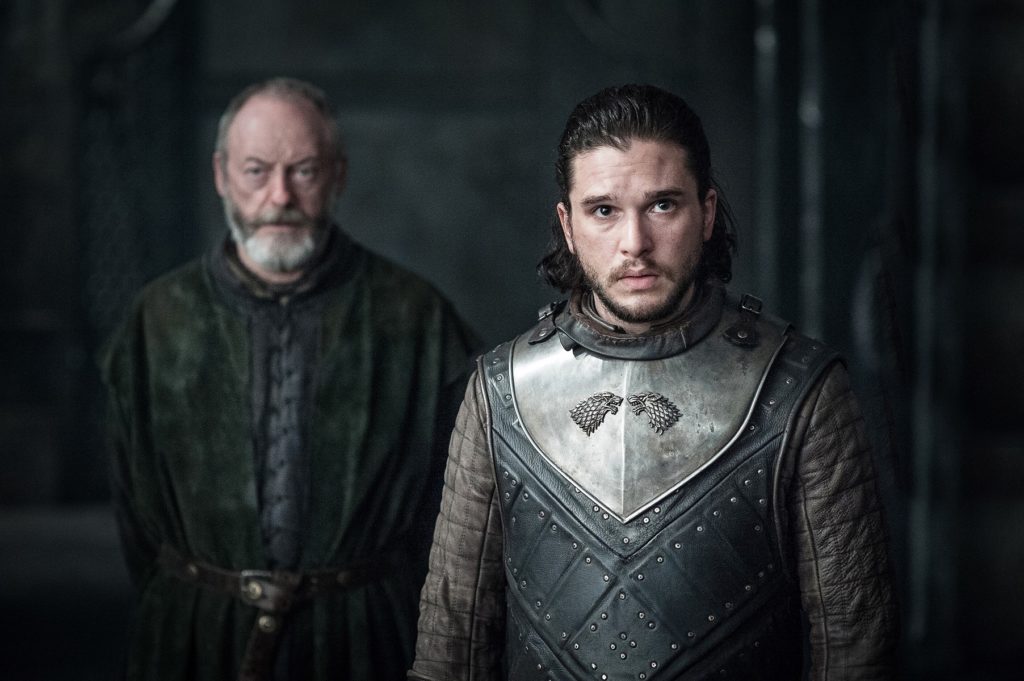
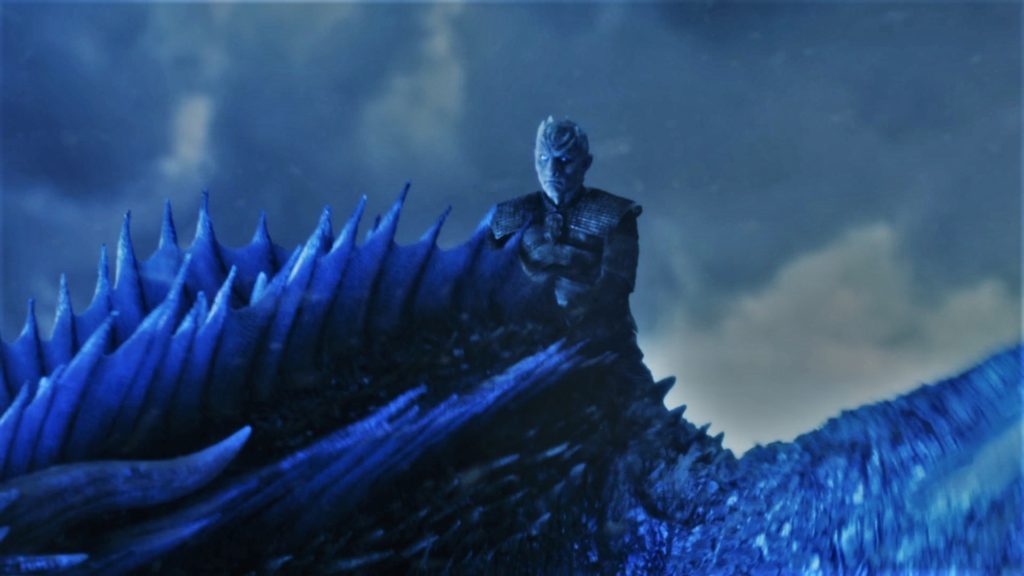
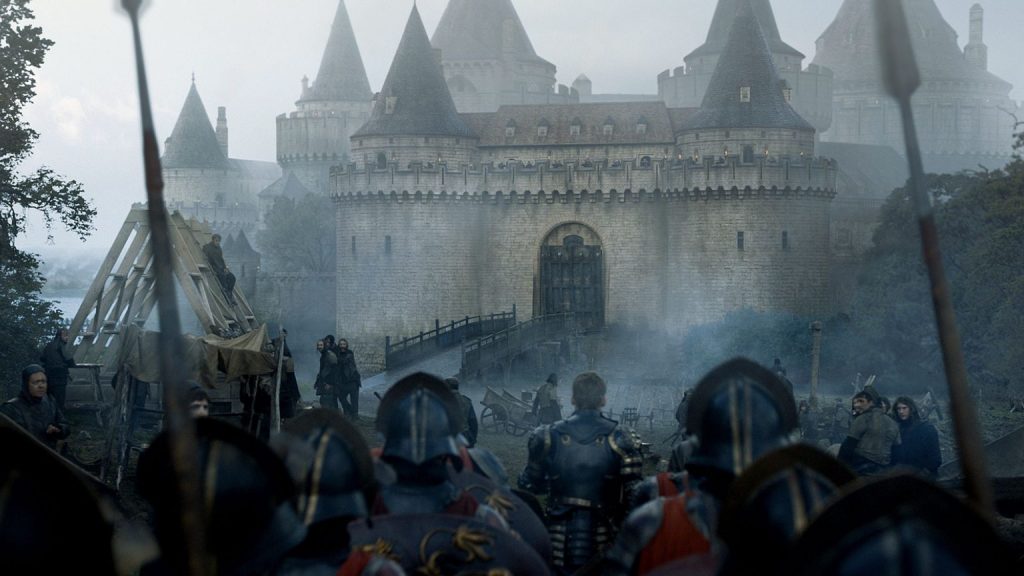
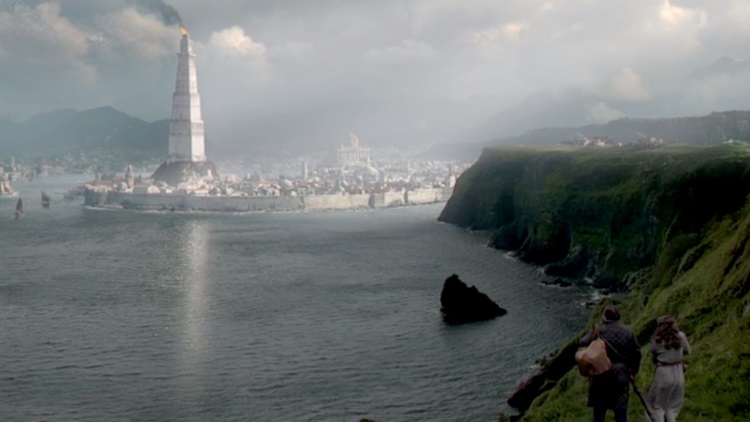
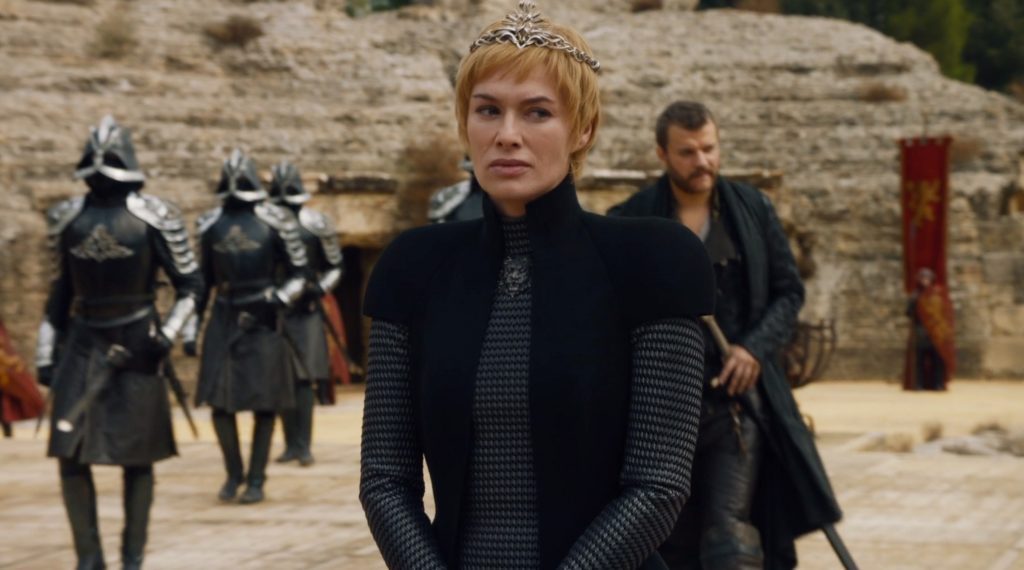
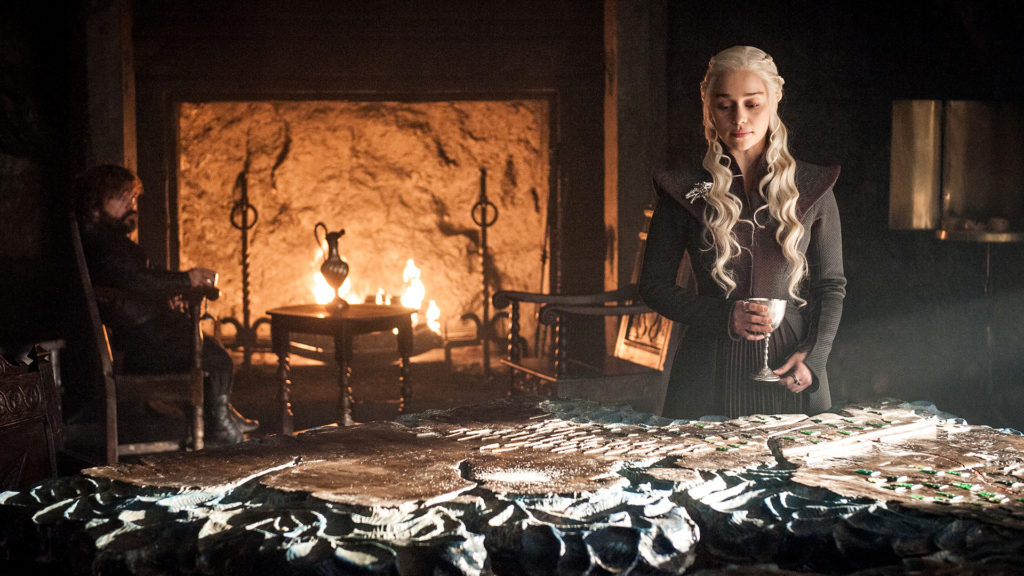

No comments:
Post a Comment